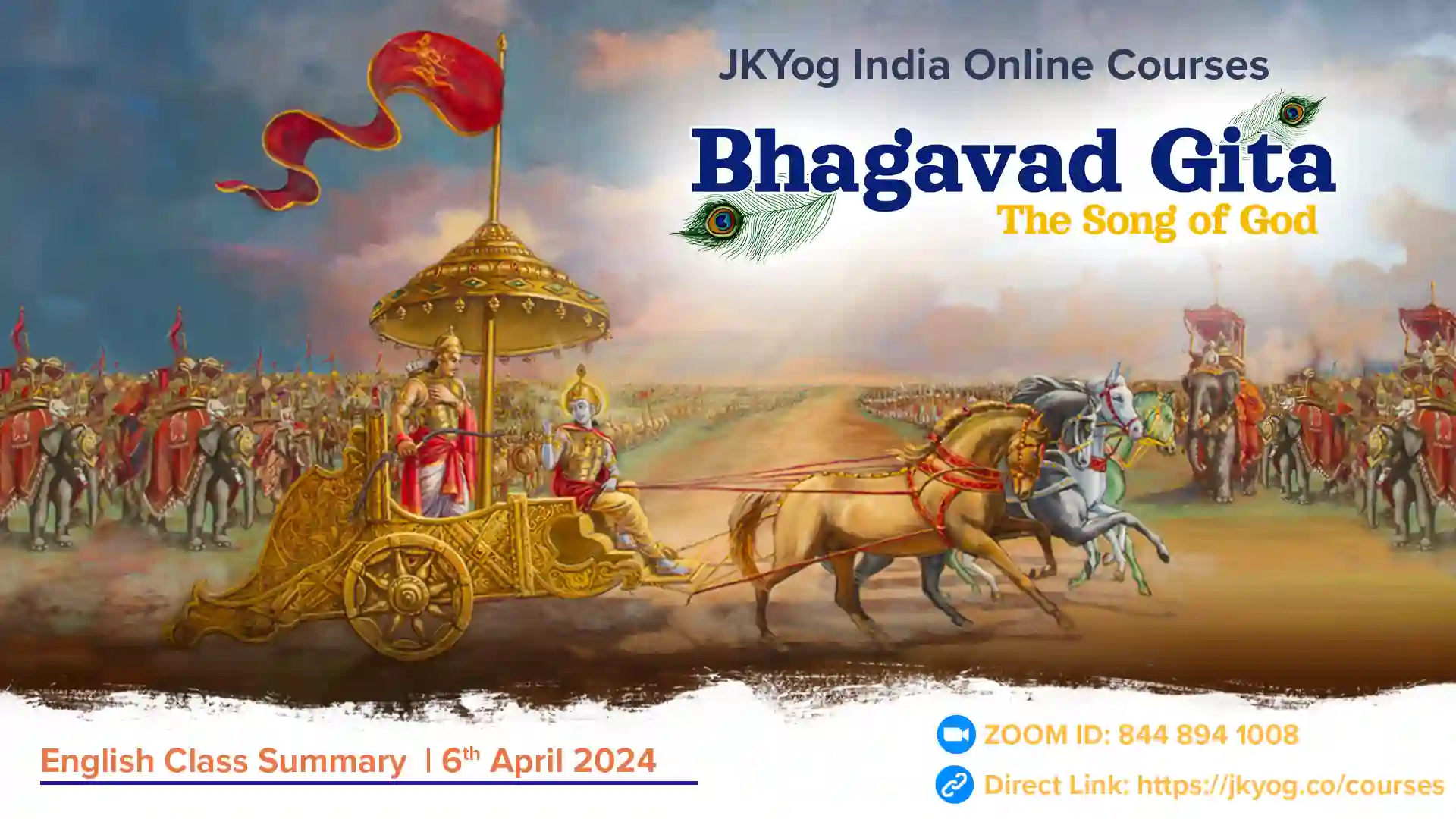In Bhagavad Gita Chapter 2, verses 66 to 72, Shree Krishna underscores the struggle of worldly suffering and the importance of self-control and devotion. He paints a vivid picture of the entanglement in the cycle of suffering caused by the three-fold miseries of maya, a plight that many can relate to. However, he also offers a way out through discipline and a connection to the divine, which can purify the intellect and lead to control over the senses, preventing the mind from being swayed from the path of divine wisdom.
Krishna illustrates the contrasting perspectives of those focused on worldly pleasures and those with spiritual knowledge. Those who are in mundane consciousness consider the opportunity for worldly pleasures as the success of life or 'day' and deprivation from sense pleasures as darkness or 'night'. On the other hand, those who are wise with divine knowledge see a sense of enjoyment as harmful for the soul and, hence, view it as 'night'. They consider refraining from the objects of the senses as elevating to the soul and consequently look at it as 'day'.
Shree Krishna states that what is a night for the sage is a day for the worldly-minded people and vice-versa. This juxtaposition serves to highlight the peace that can be attained through self-control and divine wisdom, a concept that can instil a sense of calm in the audience. The ocean is unique in its ability to maintain its undisturbed state despite being inundated by the constant flow of rivers into it. Similarly, the realised sage remains quiescent and unmoved in both conditions- while utilising sense objects for bodily necessities or being bereft of them. Only such a sage can attain shanti or true peace.
विहाय कामान्य: सर्वान्पुमांश्चरति नि:स्पृह: |
निर्ममो निरहङ्कार: स शान्तिमधिगच्छति ||
vihāya kāmān yaḥ sarvān pumānśh charati niḥspṛihaḥ
nirmamo nirahankāraḥ sa śhāntim adhigachchhati
Translation: That person who gives up all material desires and lives free from a sense of greed, proprietorship, and egoism attains perfect peace.
In the Verse 2.71, Shree Krishna lists the things that disturb one's peace and then asks Arjun to give them up:
- Material desires
- greed
- ego
- proprietorship.
When the soul purifies the heart, God bestows His divine grace. From that point onwards, the soul becomes free from the bondage of maya for the rest of eternity. When this state of God-realisation is achieved, the soul is said to be jivan mukt, or liberated soul. The liberated soul finally discards the corporeal body and reaches the Supreme Abode of God. That state of eternal liberation from maya is also called nirvana, moksha, etc. As a result, liberation is a natural consequence of God-realisation.
Summary: JKYog India Online Class- Bhagavad Gita [English]- 06.04.2024








